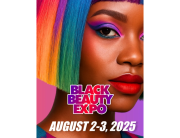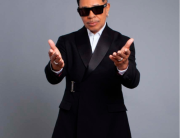A nail salon or nail bar is a specialty beauty salon establishment that primarily offers nail care services such as manicures, pedicures, and nail enhancements.
Generally, those working in nail salons are referred to as nail technicians. In some areas throughout the United States, nail technicians must hold formal, state-recognized qualifications in order to be able to work at nail salons.
Often, nail salons also offer skin care services. Manicures are also offered by general beauty salons, spas, and hotels. People who work at nail salons are usually called nail technicians, manicurists, or nailists. Nail salons offer a variety of options for nail care, examples of which include acrylics, silk or fiberglass wraps, French manicures, polish, and pedicures. Some nail salons offer one-stop beauty services. In addition to nail services, one-stop nail salons offer facial treatments, waxing, and skincare.
There is some evidence to suggest that nail salon workers are subjected to potentially unjust, hazardous working conditions. In surveys conducted on Vietnamese-American nail salon workers, many responses suggested that the work environment may cause negative health consequences. According to Standard 62-1989: Ventilation for Acceptable Indoor Quality of the American Society for Heating, Refrigeration, and Air Conditioning Engineers, an adequate supply of outdoor air should be about 20 cubic feet per minute per occupant. This necessitates multiple pathways for air to enter and exit the room. Such pathways include but are not limited to, windows and doors. The study revealed that one-third of the surveyed nail salons had only one single door for ventilation with no secondary air pathway.
Due to the nature of salon work, many nail technicians are required to wear masks and gloves. Other surveys conducted on similar worker populations revealed that 90% of workers wore masks and 70% wore gloves to work.
Common responses by interviewed workers included:
- “We know chemicals are dangerous, the owner tells us to wear masks”
- “Says that chemicals are harmful so always need to keep the ventilator on and close lids, covers of chemicals surely.”
- “Because I am young and pregnant and I don’t want to breathe in the dust and chemicals – I’m afraid that it might affect my child later on”
Chemical Exposures
Nail technicians use beauty products like nail polish, nail polish removers, artificial nails, adhesives, and disinfectants throughout the day. Compared to the average individual, they are exposed to the chemical ingredients the products contain on a much higher magnitude. Some of the more potent chemicals are toluene, formaldehyde, ethyl methacrylate (EMA), and dibutyl phthalate (DBP). Nearly all chemicals are reported to be eye, skin, nose, and throat irritants. Some chemicals, like toluene and dibutyl phthalates, are known endocrine disruptors.
According to the National Institute of Environmental Health Sciences (NIEHS), endocrine disruptors are chemicals that interfere with the endocrine system, which is regulated by hormones. These hormonal disruptors can potentially lead to tumors, birth defects, reproductive harm, and neurological, developmental, and immune degradation.
Photo by Henry & Co. on Unsplash







Add Comment
You must be logged in to post a comment.